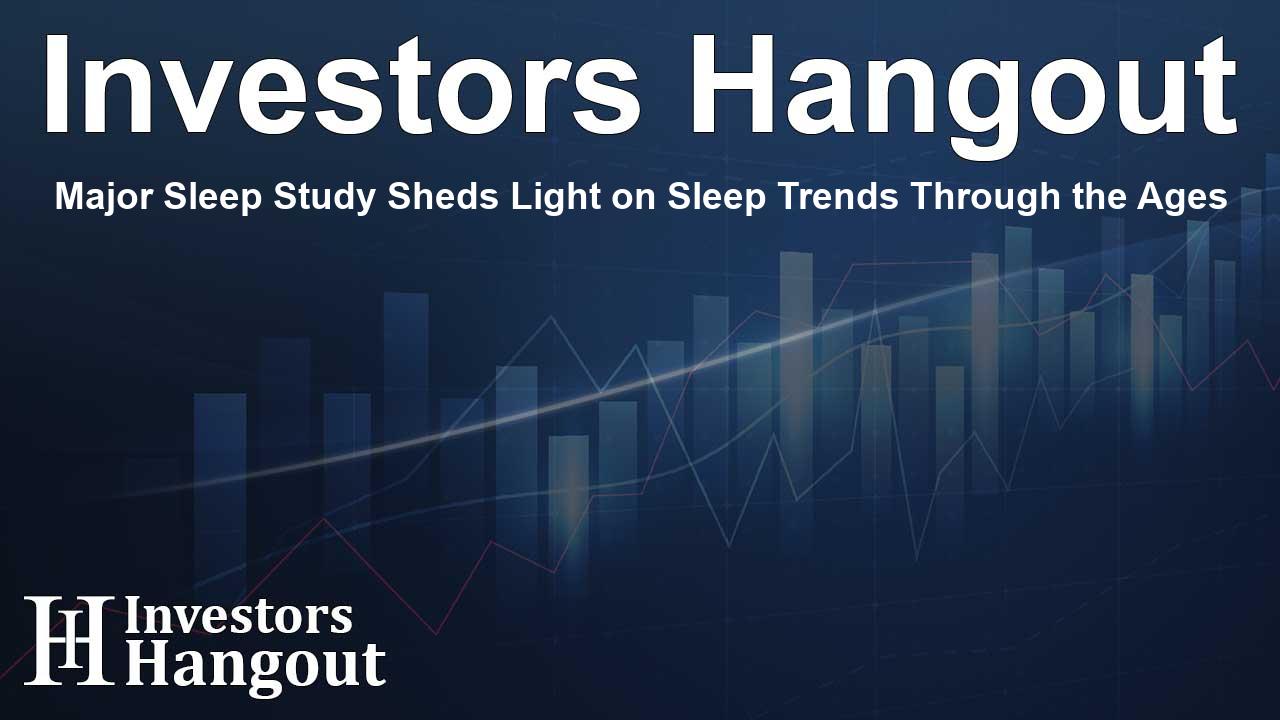Major Sleep Study Sheds Light on Sleep Trends Through the Ages

Major Sleep Study Unlocks Insights into Sleep Patterns
Groundbreaking research conducted by Fullpower-AI, in collaboration with esteemed institutions like Stanford University and UCSF, unveiled significant findings about sleep habits among different age groups. This landmark study was recently presented at a notable European Sleep Conference, showcasing data derived from the revolutionary Sleeptracker-AI platform. The analysis of over 7 million nights of sleep data has propelled us into a new era of understanding sleep health.
Key Findings in Sleep Duration and Quality
The comprehensive research uncovered a U-shaped distribution when it comes to sleep duration across various age brackets. Interestingly, it was found that middle-aged individuals typically have shorter sleep durations than both younger adults and their older counterparts.
Deep Sleep and REM Trends
Another notable aspect of the study is the trend in deep sleep and REM sleep percentages, which decline steadily with age. Not surprisingly, those suffering from sleep apnea, defined by an Apnea-Hypopnea Index (AHI) greater than 5, exhibit a marked reduction in deep sleep across all age ranges.
A Closer Look at Age-Specific Sleep Data
Diving deeper into sleep metrics, the study provided detailed insights based on different age demographics:
Sleep Patterns by Age Group
- Young Adults (20-25 years): This group averages 431 minutes of sleep per night, with deep sleep accounting for 15.9% and REM sleep for 26%.
- Adults (30-55 years): Participants in this range average around 413 minutes of nightly sleep, featuring 14.3% deep sleep and 25.7% REM sleep.
- Older Adults (80-85 years): Here, the average sleep duration drops slightly to 420 minutes, displaying 13.1% deep sleep and 22.9% REM sleep.
Implications for Sleep Health Awareness
According to Philippe Kahn, the visionary Founder and CEO of Fullpower-AI, "This study provides crucial baseline data for understanding sleep patterns across the lifespan and the impact of sleep disorders. It underscores the importance of the 7-hour sleep recommendation and highlights how conditions like sleep apnea can significantly impact sleep quality." These insights are pivotal and may guide future clinical practices in the field of sleep medicine.
Future Directions in Sleep Research
The scale and depth of this study represent a monumental leap in the understanding of sleep science. The unique dataset may help set the stage for future research and enhance clinical practices related to sleep disorders. Fullpower-AI continues to evolve its platform to support clinical trials and practitioners, ensuring that their innovative tools address growing concerns about widespread sleep issues.
About Fullpower-AI
Fullpower-AI is dedicated to designing, developing, and operating the Sleeptracker-AI platform across the globe. Their technology, which is integrated into market-leading sleep products such as Tempur-Pedic smart beds, provides clinical-grade accuracy rivaling traditional polysomnography. This commitment to innovation underlines their continuous effort to improve sleep health worldwide.
Frequently Asked Questions
1. What was the main goal of the study?
The main objective was to analyze sleep patterns across different age groups using extensive sleep data to identify trends in duration and quality.
2. How was the data collected for this study?
The data was collected through the Sleeptracker-AI platform, analyzing information gathered from over 7 million nights of sleep.
3. What age group had the longest average sleep duration?
Young adults aged 20-25 years were found to have the longest average sleep duration at 431 minutes per night.
4. How does sleep apnea affect sleep quality?
Individuals with sleep apnea experience diminished deep sleep across all age groups, which can lead to a reduction in overall sleep quality.
5. Why is the 7-hour sleep recommendation important?
Sleeping for at least 7 hours is crucial for maintaining good health and well-being, helping to mitigate the negative effects of sleep disorders.
About Investors Hangout
Investors Hangout is a leading online stock forum for financial discussion and learning, offering a wide range of free tools and resources. It draws in traders of all levels, who exchange market knowledge, investigate trading tactics, and keep an eye on industry developments in real time. Featuring financial articles, stock message boards, quotes, charts, company profiles, and live news updates. Through cooperative learning and a wealth of informational resources, it helps users from novices creating their first portfolios to experts honing their techniques. Join Investors Hangout today: https://investorshangout.com/
Disclaimer: The content of this article is solely for general informational purposes only; it does not represent legal, financial, or investment advice. Investors Hangout does not offer financial advice; the author is not a licensed financial advisor. Consult a qualified advisor before making any financial or investment decisions based on this article. The author's interpretation of publicly available data shapes the opinions presented here; as a result, they should not be taken as advice to purchase, sell, or hold any securities mentioned or any other investments. The author does not guarantee the accuracy, completeness, or timeliness of any material, providing it "as is." Information and market conditions may change; past performance is not indicative of future outcomes. If any of the material offered here is inaccurate, please contact us for corrections.